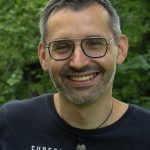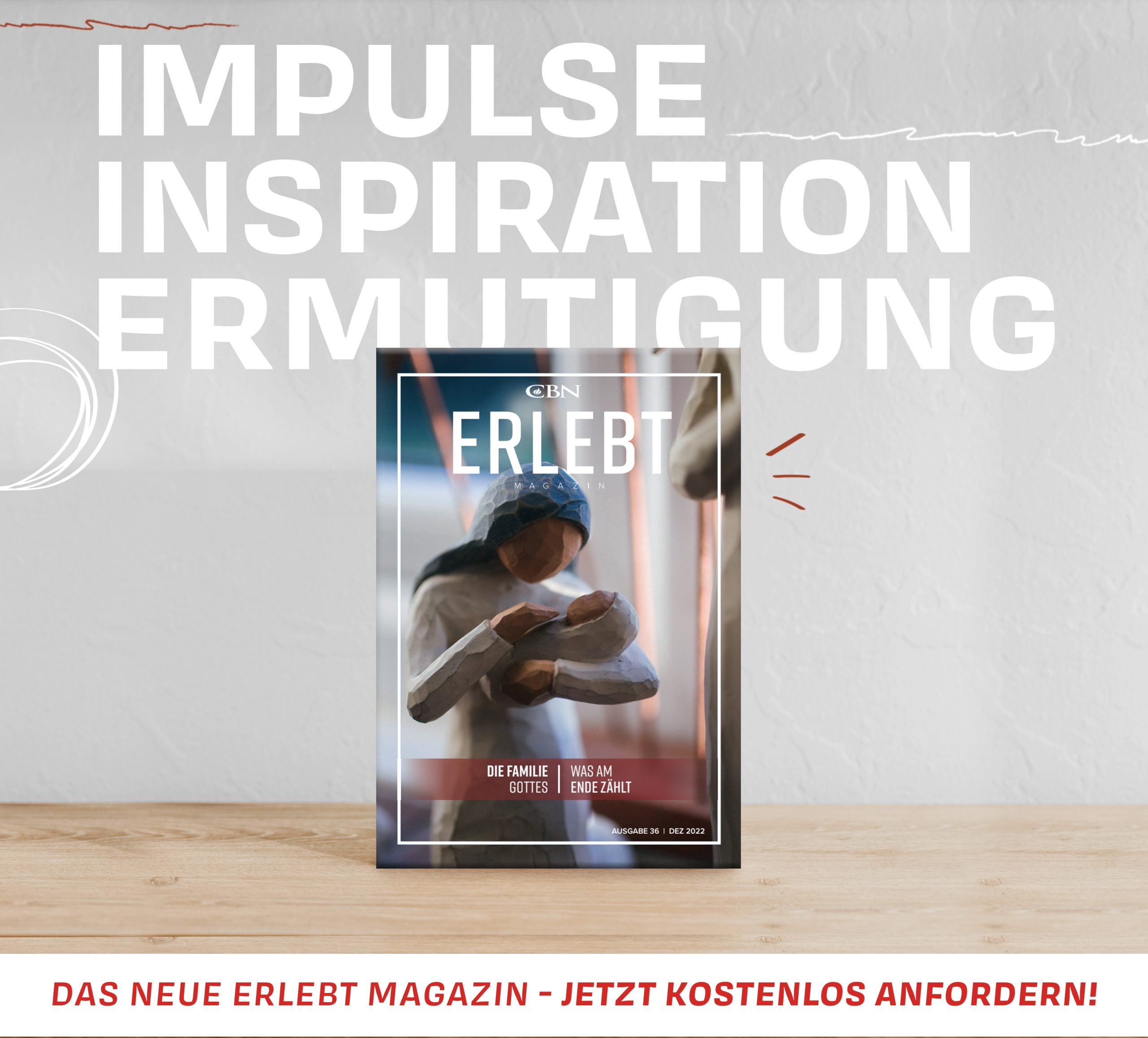Or: Why there are no perfect families in the Bible
by Stephan Münch, theologian and director of the “Lebenstraum” project
An insight around the campfire
With tears in her eyes, Verena (20), sat around the campfire and told her story. I could hardly believe it: her single mother was a severe alcoholic and whenever Verena came home from school as a 14-year-old girl, she didn’t know in what condition she would find her mom. Verena took over a large part of the household herself, cleaning up, cooking meals, etc. – an excessive demand for any teenager. And so she grew up. Then, at the age of 19, she did an au pair year in Norway. And it was during this time that her mother suddenly died.
After the year abroad, Verena then came to our orientation year, ‘Lebenstraum’. She wanted to take a year to come to terms with her history. To clarify some things and to regain her inner balance. Even if everything is not yet whole and perfect: Today she can look back and say: “Even when storms rage around us, when everything else breaks and the ground disappears under my feet – I can know that Jesus still catches me.”
Eight years ago, my wife and I founded the ‘Lebenstraum’ orientation year. 14 participants spend ten months with us to develop personally, spiritually, and professionally. At the beginning of the year, we take the participants away for a weekend and everyone gets to share their story around the campfire. With all the ups and downs, sometimes I can hardly believe the life and family stories behind a strong young man or a tough young woman.
Telling life stories around the fire has taught me that each story is unique and challenging. There are no smooth biographies where everything is perfect. Life throws things at each of us that are not easy to bear. Some sooner – some later.
The Bible is full of family tragedies
That not everything goes smoothly in life, we can also see in the Bible. This Book is full of challenging family stories. We don’t find a single idyllic father-mother-child story there, where everything is always sunny. The very first family we are introduced to at the very beginning of the Bible is marked by lies and recriminations. Adam and Eve blame each other: “The woman you gave me gave me the fruit!” (Genesis 3:12). And the tragedy continues in the next generation: the first two brothers – Cain and Abel – formed a very unequal pair. Cain eventually becomes so envious of his brother that he backhandedly murders him in the open country. And that’s just the beginning. As we continue to leaf through the Bible, we read of illegitimate relationships, of lies; and betrayal. We read of adultery and murder. Of hatred and envy among brothers. Of vanity and envy.
But – thank God …
… there are also other stories. Stories of reconciliation, forgiveness, change of the past. We read of people who, through God’s help, let their character slide and thus influence whole generations. Through them, a stream of blessing is set in motion that can be felt to this day. This is the case with Joseph, for example, who forgives his hated brothers and creates a new home in Egypt for his entire family. When Joseph looks back on his life, he draws a positive conclusion. Although his own brothers sold him to Egypt and Joseph had to go through many difficult valleys, he says to his brothers in Genesis 50:20: “You intended to do evil to me – but God intended to do it well, to do what is now necessary. Namely, to keep alive a great nation.” This story – and many other family stories in the Bible – give hope. God can make something good grow out of the most difficult circumstances. God can turn bad stories into blessing stories.
Honest with herself
God turns tears into blessings. Verena was able to experience this in her life. Through her experiences as a child and teenager and the sudden death of her mother, she had a heavy burden with which she had to go through life. But through conversations, prayers, mentoring and therapy, she was able to work through things piece by piece and was allowed to experience healing in small steps in the community with other young people.
Every person carries around burdens of their past. Some are very heavy, some lighter. And that is why it is all the more important to ask oneself honestly: Where do I come from – who am I – how was my character formed? How did my family of origin shape me?
The following questions can help:
– What treasures (character, talent) have my parents passed on to me – that I can draw on – that I want to develop?
– But where are also negative behaviors that I have adopted – and how can I change them?
– Where is there guilt, where was I wronged, where was I hurt, humiliated, or oppressed?
– And where do I pass on deficits and wrongs done to me to others?
Reflecting on these questions can help to come to terms with one’s own life experience and to experience healing piece by piece. This enables you to let God change you. And from this blessing you can pass on to others.
The Bible encourages us to put our money where our mouth is and take action.
That is why Paul writes to the Ephesians (4:22-24): You are to separate yourselves for good from your old life, the “old man” with all its deceitful passions, and no longer destroy yourselves. God’s spirit wants to fill you with a completely new mindset. You are to put on the “new man” as one puts on a dress. This new man has been created by God Himself in His image; he is righteous and holy because he adheres to the Word of Truth.
This sounds easy – but, it is anything but easy: putting off the old life like a garment and then putting on the new man. It is a process that does not happen in a moment. It takes many conversations, clarification of the past. It sometimes takes years – in the case of some heavy burdens, perhaps a whole lifetime – to learn to deal with them.
We cannot cope with such a process alone. We need the support of people with whom we can practice becoming honest with ourselves, with others and with God. This can be a mentor or a counselor. But sometimes it is also helpful to have some conversations with a therapist or psychologist.
In conclusion.
No one can face their family history alone. We need conversation partners along the way. In my experience, through God’s help, prayer, intensive conversations and forgiveness, new things can emerge. Just like with Verena – or also with Joseph in the Bible. God can turn my difficult story into a story of blessing.
* * *

Since 2014, theologian Stephan Münch and his wife Hanna have been running the ‘Lebenstraum’ project, which accompanies young people for 10 months and provides individual support in personal, career, and faith. Stephan is also a coach and mediator, lecturer and author. Stephan and Hanna have four children together.
Want to read more? Please order our Erlebt Magazin (only available in German)






